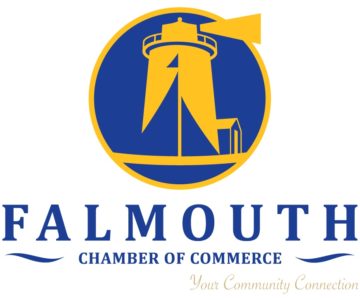By Beth Waterfall
The newness and excitement over the opportunities emerging in the nascent cannabis industry can be distracting from the fact that cannabis businesses are—mostly—just like businesses in other legal industries. Whether they are medical marijuana dispensaries or a manufacturer of ancillary technology used by cannabis consumers, cannabis businesses require everyday business services such as insurance, legal, HVAC, security and accounting to ensure that they are compliant and successful.
But for some of these service providers, like Mitzi Hollenbeck, partner with leading accounting firm Citrin Cooperman, working with the business leaders pioneering the cannabis industry isn’t so new. In just a few short years, Mitzi’s local experience and industry leadership has positioned her as a go-to accounting services provider for the cannabis industry in Massachusetts and beyond.
“For me the excitement lies in the huge opportunity for CPAs and professional service providers to help legitimize the industry,” said Mitzi. “It’s thrilling to work where there’s lots of innovation—it’s always moving, always challenging and there’s always room for growth.”
Mitzi is currently working with a variety of licensed and pre-licensed medical marijuana, adult-use and industrial hemp companies in multiple states. They come in all sizes, from mom-and-pop to international companies seeking Canadian acquisition, and they each face both standard and unforeseen business issues.
“Perception is still a problem, but sometimes it just takes walking through a cultivation center or dispensary to understand that this is a real business industry,” Mitzi said. “It’s very rare to see the birth of an industry, and there simply needs to be more education to shift negative perceptions.”
In addition to serving her clients at Citrin Cooperman, Mitzi’s service as a member of the Lakeville Board of Selectmen provides her another platform to understand and address public concerns over licensed cannabis businesses.
“We’ve seen lots of public backlash, mainly because the general public doesn’t understand the industry or the regulations the industry is required to follow,” Mitzi said. “As we see more retail stores open, it’s human nature to focus on the negatives, like traffic congestion, but then, unfortunately, town leaders use that as a reason to continue moratoriums or bans.”
Mitzi shares Lakeville as an example of what happens when voters and decision makers do not understand the issues or when the timing of that understanding is mismatched. At its June 2018 town meeting, the people of Lakeville authorized and zoned all cannabis business license types within the town’s industrial zone. Then, months after the articles were passed, a citizens’ petition to ban retail sales was put forth at the subsequent November town meeting. As a result, one of the cannabis businesses that had been working with the town for over a year pulled their Lakeville retail application and moved it to another town where zoning was not being challenged in a subsequent town meeting.
The Lakeville citizens’ petition, requiring a two-thirds vote to overturn existing zoning, ultimately failed, and retail license types were secured as an option in the town’s industrial zones. However, the reality of zoning challenges and local control was enough to change the business landscape in Lakeville for at least one operator.
Moratoriums and bans are a significant barrier for growth on Cape Cod, too, and local control has more power in shaping the business landscape than many realize. In an industry where store and brand loyalty is a path to business longevity, the future of a particular business may be largely dependent upon its ability to make an early first impression in the marketplace.
“When you look at the Cape and Islands, if businesses don’t get off the ground early, the profitability factor starts to wane,” Mitzi explains. “The best operators will set up their businesses and generate tax revenue elsewhere and the towns who were late to the game will not be as attractive to businesses looking to site.”
Delays will also create congestion around the few retail establishments allowed in places like Mashpee and Nantucket. “If tourists are only able to go to one retail shop in Mashpee and one on Nantucket, traffic will definitely be a major concern, especially when tourism is high.”
For the Cape and other popular summer tourist destinations, Mitzi notes the value that cannabis jobs can have on not just the local economy, but the population of families living and working in the area.
“Having licensed dispensaries, cultivators and infused product manufacturers throughout the Cape means more full-time, year-round jobs,” Mitzi explains. She also notes that, in general, jobs at licensed cannabis businesses in Massachusetts pay well, which can help local companies retain their top local talent.
“Allowing these businesses to operate in our towns allows for jobs and steady employment year-round,” she said. “This is important for the economy of the Cape and the people who live—or hope to live—here.”
To learn more about Mitzi, visit https://www.citrincooperman.com/professionals/mitzi-hollenbeck
Cannabis Innovators: Mitzi Hollenbeck





















